Last term was my first time in more than 6 years that I taught in Spanish. During Fall 2013 I taught State and Local Government (Gestion Estatal y Municipal) at CIDE. Originally, my plan was that I was going to teach the course in English, but ended up having to teach it in Spanish, a fact that greatly hindered my ability to offer many more recent readings in English. The topic of local governments is heavily studied in Mexican Spanish-speaking academia, but given how many years I have been out of the country, I was rather unfamiliar with the authors, and with what was being researched. It was way easier to just go into the English-language scholarship, and the typical journals that cover this specific topic (State-and Local Government Review, Local Government Studies, etc.)
While I had to rewrite the entire syllabus, I still remained intent on teaching my students skills that would get them hired. My courses at UBC were always applied and I made sure that my students completed their coursework feeling that they had learned something practical, something that would be useful for them once they had already completed their degree. At UBC I taught in the department of Political Science, although I always had students from many other disciplines (who were mostly attracted to my courses because they saw the practical applications). Here I teach in an interdisciplinary undergraduate degree, a Bachelors of Government and Public Finance. Of course, I am also required to teach in the Masters and PhD programmes at CIDE (in the Santa Fe campus), but for now, I am on a very low teaching load (1-0).
Given that I have a low teaching load, I have had time to ponder and think what I want my students to gain from my courses. In the past few years, I have received numerous emails from students who were happy I taught them how to write briefing notes, case studies and policy memorandums. They always keep emphasizing what I already had in my mind when I started teaching Public Policy: in our current job market, it is IMPERATIVE that our students learn to write stuff that will be valuable to them, that may help them get hired or that may help them in their current job, if they are already working. Recently, I tweeted about these three different types of policy documents I teach my students: policy memorandums (or memoranda), case studies in public policy and briefing notes (or briefing cards – in Spanish the name is “tarjetas informativas“).
Case Studies in Public Policy
Case studies, in the form I use them, present a particular situation, provide background and a description of a situation that can be solved through public policy analysis. For me, case studies are 10-15 pages summaries that outline a case that can be used as a teaching example.
The case method has been favored as a teaching strategy in business schools for decades. I have an MBA, I should know! Harvard School of Business has made its case study teaching method almost a trademark. They have even published on the Core Principles of Teaching with Cases. When I did my MBA, I worked on HBS Cases for homework, and thus I became determined to transfer what I learned to my own teaching in public policy.
When I first started teaching Public Policy, I thought that nobody had thought about my brilliant idea of teaching public policy analysis with cases. Well, obviously I was wrong, as the following resources can indicate:
- Teaching Cases in Public Administration – This document, written by Andrew Graham (School of Policy Studies, Queens’ University), hosted by the Institute of Public Administration of Canada (IPAC), gives readers a nice overview of the rationale of teaching public administration using the case study method.
- At least two textbooks in public administration and public policy analysis use case studies:
(a) Cases in Public Policy Analysis. Third Edition. George M. Guess and Paul G. Farnham.
(b) Cases in Public Policy and Administration: From Ancient Times to the Present. Jay M. Shafritz and Christopher P. Borick - The Evans School of Public Affairs created an online repository of cases for public policy and public administratin, the Electronic Hallway. You do have pay a membership fee (I am a member), but I find their cases fantastic and innovative
- CaseWeb, the Case Study Bank of Harvard School of Government can be found here.
- The has also some good cases on climate change.
One of my goals in 2014 is to edit last year’s student case studies to actually build a handbook of case studies in public policy specifically for the Mexican academic market.
Policy Memorandums
Policy memorandums (or memoranda, if you want to be picky about grammar/spelling) are short documents that provide policy makers with advice on a particular situation. While briefing notes and policy memorandums may sound similar (and in some cases, they are used interchangeably). For me, policy memos are action-oriented analytic summaries. The best description I can give can be found on this document (from MIT Planning).
A policy memo is a document that provides analysis and/or recommendations for a particular audience regarding a particular situation or problem. A well-written policy memo reflects attention to purpose; it is well organized; and it has a clear, concise style.
For me, policy memoranda can be longer than briefing cards.
Briefing cards (Tarjetas Informativas)
Briefing cards, or briefing notes, which in Spanish are translated as “tarjetas informativas” – the difference between briefing cards and policy memorandums, the way I conceptualize it, is that the latter can be longer, whereas briefing cards are short, to the point, and provide talking points for bureaucrats, politicians, etc.
- A model of briefing card that also approaches or is intermediate between policy memorandum and briefing card can be found here.
- A good resource on writing briefing notes can be found here


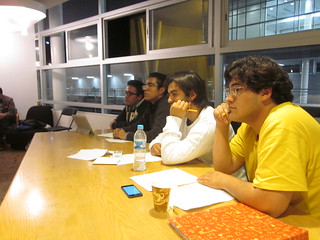
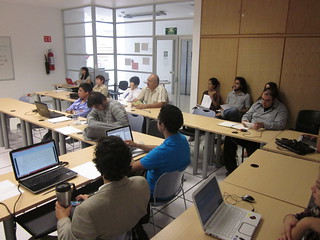
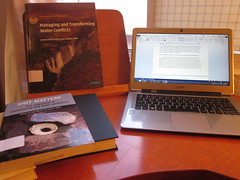

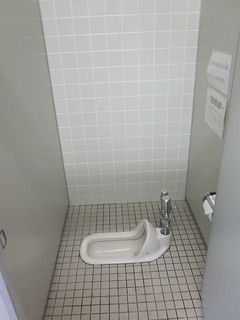
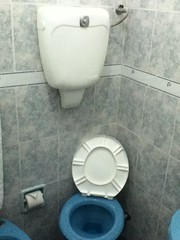

Recent Comments